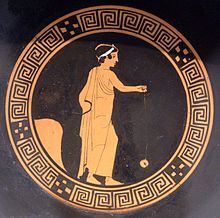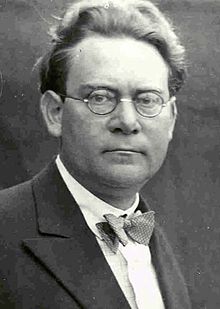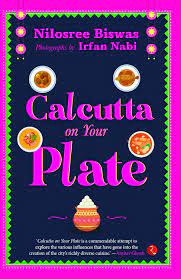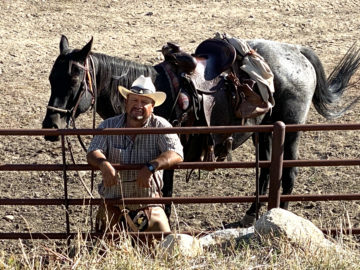by Akim Reinhardt

No longer eating meat was similar to no longer believing in God. I can’t pinpoint a moment when it ended, for abstinence did not come upon me suddenly. Rather, what had once been a bedrock of my existence slipped away after years of contemplation. Some time in 1995, I realized it was no longer part of my life. This coincided with me moving to Nebraska, which did not make giving it up any easier. Meat, that is. God was a few years earlier.
But why?
More and more it seemed to me that the differences between dogs and cows and monkeys and horses and pigs and cats and us were not so vast. Mammals were too much like each other for me to feel okay about killing and consuming them for pleasure, as it were, since I didn’t need to eat meat. If it were 18th century America, of course I would. What alternative would I have? But with the 21st century rapidly approaching, meat was a luxury I could forego. And it felt hypocritical to ask someone else, anonymous minimum wage workers on slaughterhouse assembly lines, to slay and gut animals for me if I were now unwilling to do that myself.
I still enjoyed fishing once in a rare while, so I went on eating seafood. Fish still seemed like creatures from another world. But I could look most any mammal in the eye and see a little bit of myself in there.
Or a piece of you. Read more »




 The man who’d spoken to me before appears at my side and whispers into my ears again.
The man who’d spoken to me before appears at my side and whispers into my ears again. In the past decade, the writer Simone Weil has grown in popularity and continues to provoke conversation some 80 years after her death. She was a writer mainly preoccupied with what she called “the needs of the soul.” One of these needs, almost prophetic in its relevance today, is the capacity for attention toward the world which she likened to prayer. Another is the need to be rooted in a community and place, discussed at length in her last book On the Need for Roots written in 1943.
In the past decade, the writer Simone Weil has grown in popularity and continues to provoke conversation some 80 years after her death. She was a writer mainly preoccupied with what she called “the needs of the soul.” One of these needs, almost prophetic in its relevance today, is the capacity for attention toward the world which she likened to prayer. Another is the need to be rooted in a community and place, discussed at length in her last book On the Need for Roots written in 1943.

 In debates about hedonism and the role of pleasure in life, we too often associate pleasure with passive consumption and then complain that a life devoted to passive consumption is unproductive and unserious. But this ignores the fact that the most enduring and life-sustaining pleasures are those in which we find joy in our activities and the exercise of skills and capacities. Most people find the skillful exercise of an ability to be intensely rewarding. Athletes train, musicians practice, and scholars study not only because such activities lead to beneficial outcomes but because the activity itself is satisfying.
In debates about hedonism and the role of pleasure in life, we too often associate pleasure with passive consumption and then complain that a life devoted to passive consumption is unproductive and unserious. But this ignores the fact that the most enduring and life-sustaining pleasures are those in which we find joy in our activities and the exercise of skills and capacities. Most people find the skillful exercise of an ability to be intensely rewarding. Athletes train, musicians practice, and scholars study not only because such activities lead to beneficial outcomes but because the activity itself is satisfying.


 I’m excited about the imminent Halloween publication date of
I’m excited about the imminent Halloween publication date of  South Asian literature. As part of this, I was delighted to be sent
South Asian literature. As part of this, I was delighted to be sent 



 The most intimidating item by far was
The most intimidating item by far was 
